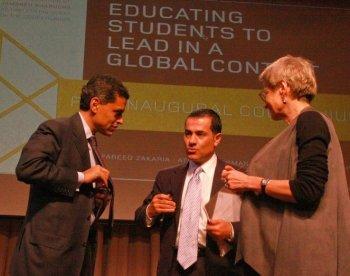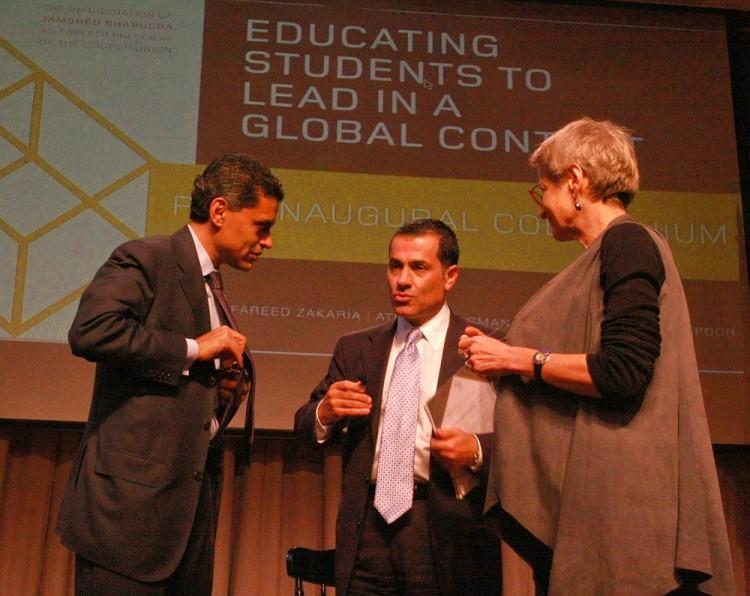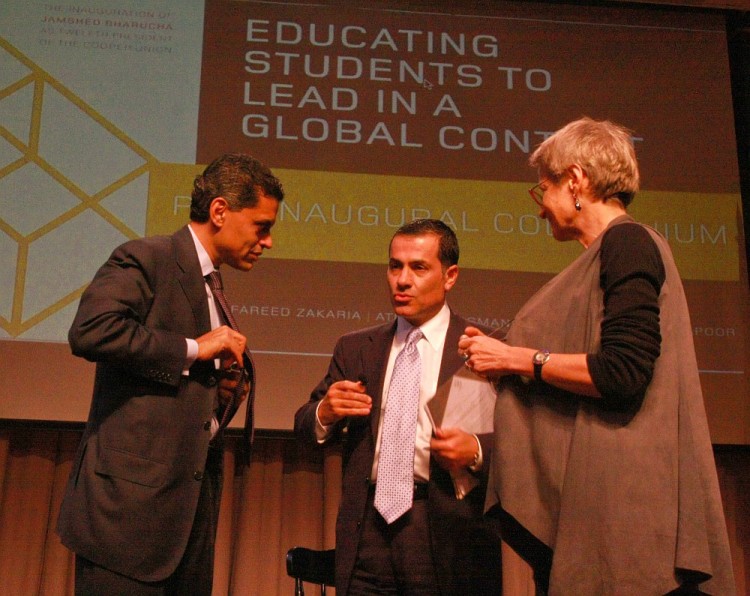College Innovation Key to Keeping Pace With Globalization
America has, for better or worse, led the way in opening the world to globalization.

Fareed Zakaria (L), Host of CNN's Fareed Zakaria GPS, talks with fellow panelists Vali Nasr, a professor of International Politics at Tufts University, and Atina Grossman (R), professor of History at The Cooper Union, after they spoke about educating students to lead in a global context at The Cooper Union on Monday. Zack Stieber/The Epoch Times

Zachary Stieber
Senior Reporter
|Updated:
Zachary Stieber is a senior reporter for The Epoch Times based in Maryland. He covers U.S. and world news. Contact Zachary at [email protected]
Author’s Selected Articles





